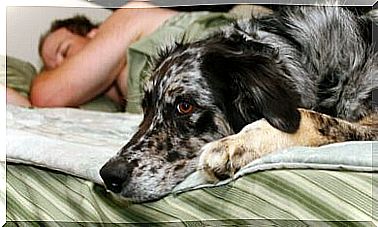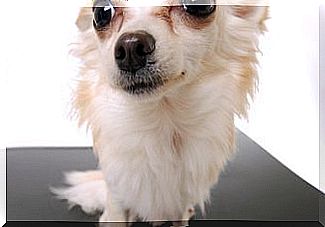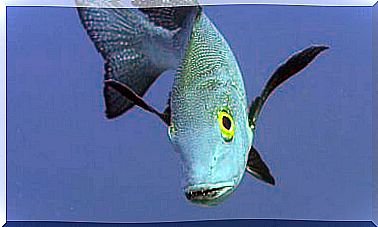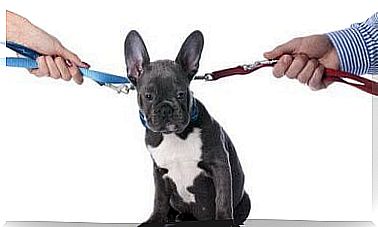How Dogs Help Autistic Children
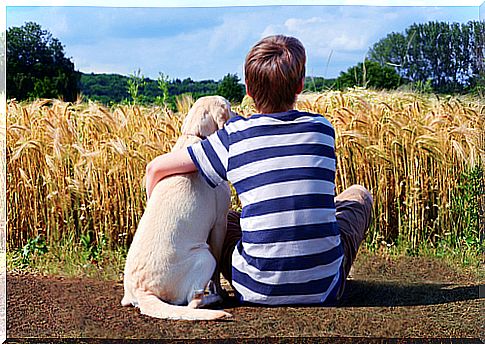
Dogs have kept humans company for hundreds of years. In fact, there is no city, town or village where there are no dogs. We are as used to them as they are to us. So it would be almost impossible to imagine a world without dogs. That’s why they also help us in fields as personal as health, especially when it comes to children.
Growing up with a dog is a beautiful experience. However, there are situations where one might think that it would not be appropriate to have a pet. However, this is nothing more than a simple appearance.
Next, we’ll look at how dogs are able to benefit autistic children.
What is autism and how pets help
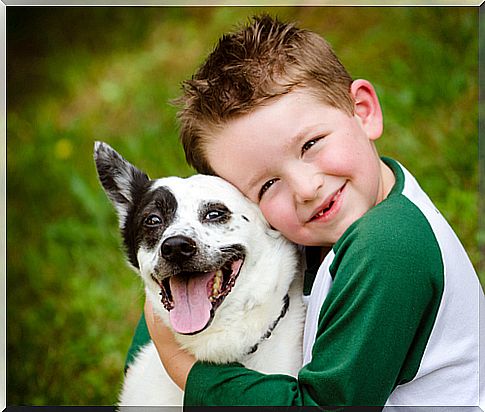
In simple terms, autism is a developmental condition of the neurological system that has its initial stages during childhood and is maintained throughout an individual’s life.
It presents itself in a wide variety of ways, including severe forms of socialization disorders such as Asperger’s, which mainly affect the way people behave and interact in their learning and language process.
Currently, the reasons for the emergence of autism are not known. However, it is assumed that genetic and environmental factors have to do with its development.
The condition does not have a specific treatment, however, efforts are focused on maximizing the person’s capabilities, so that he can lead life as close to normal and as independently as possible.
This includes language, motor, social and some medications to control typical symptoms.
According to a study conducted by the University of Missouri (USA), children with autism who have a pet have greater social skills compared to children who do not have them.
In the case of children who have dogs, they show better development of these skills. This can happen due to the affectionate needs of dogs and their ways of expressing affection.
While some pets may be a little reluctant or inappropriate to handle constantly, dogs are very effusive in their displays of affection, as well as seeking attention and companionship.
Let’s look at some of these benefits in more detail.
Greater socialization
As mentioned above, the study found that children with autism and who live with any type of pet respond well within social therapy processes.
However, (although this varies according to the characteristics of autism present in each child) the interaction with the dogs turned out to be extremely beneficial in this respect.
The dog becomes part of the child’s social dynamics, activities and centers of interest.
They got more involved with the people who make up their home
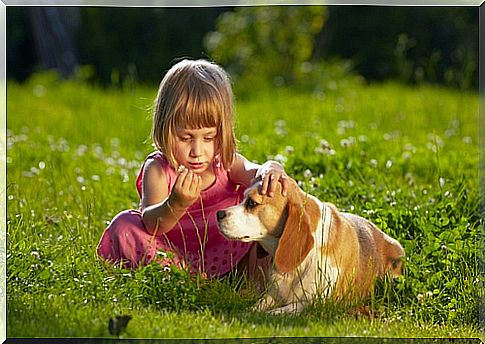
Due to the responsible ownership of pets and being alert to the needs of children, playing with the dog ends up becoming a bridge to unite the people who make up the family.
The walks and long walks turn out to be perfect excuses to include the child and expose him to situations in which he finds himself involved in different dynamics of interaction and recreation.
Children with autism have difficulties in approaching people who are alien to their home, but if this individual starts a dialogue talking to the dog, he will be more likely to have the child respond to this situation and be more open to continue the conversation .
Understanding attitudes and behaviors
Possibly one of the most difficult situations to deal with in relation to autistic children is decoding different human attitudes and behaviors, such as gestures and understandings of body language.
However, through constant interaction with dogs, little ones can enter this world and begin to understand from the most basic levels (the animal level) to the most complex structures of language.
Interested in the pet and researched about it
The child also develops an interest relationship about the pet, which leads him to want to know more about the dog. Everything related to the dog becomes a relevant topic and, therefore, this facilitates the socialization process, always opening a communication door for the use of similar themes.


